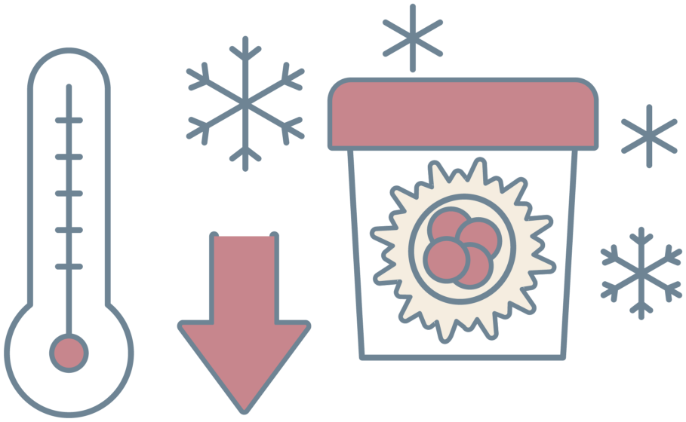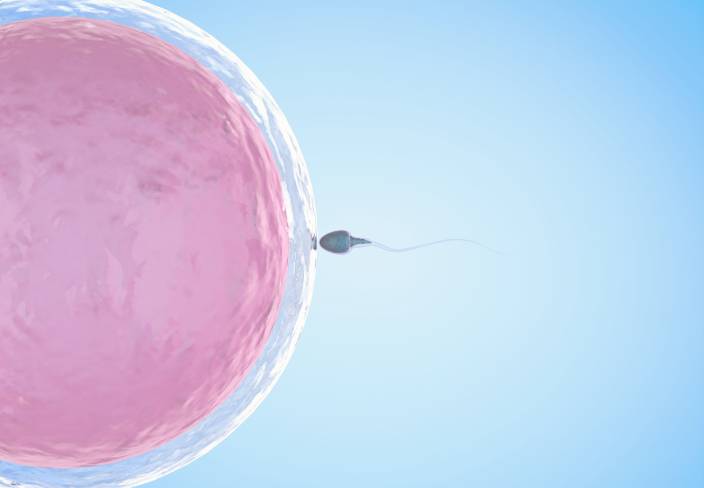Dr. Julio Saumet fertologist at Miacleo Clinic co-authored a scientific article published in 2018 in the Canadian Journal of Obstetrics and Gynecology (JOGC). This publication was a literature review of the most recent studies on the subject of egg freezing to offset age-related fertility decline. This article aims to explain egg freezing for societal reasons, a method that is increasingly used by women today. Several statistics are presented to demonstrate the chances of conception associated with this method.
The article also aims to encourage a better approach from professionals offering egg freezing in order to offer an informed choice to women wishing to resort to this technique to palliate infertility.

Age-related fertility decline
Today, for different societal reasons, women are having children later than they used to. In Canada, the average age at which women have their first child has increased from 23.7 years in 1970 to 28.5 years in 2011, and more than half of all births are to women aged 30 and over.
A woman’s desire to have a child at an older age proportionately increases the risk of infertility. As age increases, so does the risk of infertility. Studies show that the risk of infertility is about 6% from 20 to 24 years old, 16% from 30 to 34 years old and 64% from 40 to 44 years old. Age-related fertility decline is defined as a decrease in the chances of conception due to organic changes associated with aging.
This is one of the reasons why women are increasingly turning to fertility clinics to prevent the risk of age-related infertility.
What is egg freezing?
Several alternatives are now available to address age-related fertility decline. These include insemination with donor sperm, egg or embryo donation and freezing one’s own eggs for future reproductive attempts.
The latter, egg freezing, consists of preserving the eggs by a specific method called vitrification. This is an ultra-rapid cooling technique that solidifies the cell, giving it the appearance of glass, while preventing the internal structures of the cell from being damaged.


5 things to consider before freezing eggs
There are several factors to consider when thinking about egg freezing for age-related fertility decline.
- Success rate: The chances of success with egg freezing vary depending on several factors, including the age of the woman at the time of freezing, the quality of the eggs and the number of eggs frozen. It is important to know that the survival rate of thawed eggs varies, but is generally between 80% and 90%. In addition, there is very little data on the rate of live births following egg freezing. However, current data suggest that embryo transfer from vitrified eggs results in approximately the same clinical pregnancy rate as with fresh eggs.
- Age: It is important to plan for egg freezing at an early age if you are considering this technique. In egg freezing programs, the likelihood of obtaining a live birth is greatest when egg freezing is performed before age 36. It is well known that the natural fertility rate decreases after the age of 30, and that this decrease increases after the age of 35.
- Associated costs: Egg freezing can be costly, especially if you need to undergo multiple cycles of treatment. Usually, more than one cycle is required to obtain the desired number of mature eggs. It is important to understand the nature of the costs associated with the procedure and the financing options available. It is also important to be aware that there is a risk that frozen eggs may never be used, for example, in younger women or those under the age of 32, resulting in unnecessary costs.
- Associated risks: Egg freezing is a relatively safe procedure, but it does carry some risks. Ovarian stimulation can cause ovarian hyperstimulation syndrome. About 20% to 30% of women undergoing controlled ovarian stimulation develop the mild form, which is characterized by bloating and abdominal discomfort. Approximately 1% will develop the severe form which may result in bleeding, infection or damage to intra-abdominal organs. It is also possible for ovarian enlargement to result in ovarian torsion, but this complication is extremely rare. Various strategies can be implemented to avoid the occurrence of this syndrome which will be discussed with a professional in our clinic.
- Pre-testing and Alternatives: It should be noted that ovarian reserve testing will likely be offered by our fertility clinic prior to egg freezing. This test will help predict the number of eggs that can be collected following a cycle of controlled ovarian stimulation.Frozen eggs can be used for in vitro fertilization. It is important to understand the options for using frozen eggs and to discuss them with a fertility specialist to determine if this is the best option for you.In addition, several alternatives to egg freezing are available and can be discussed with a professional. These alternatives include becoming pregnant at a younger age, becoming non-biological parents through adoption or egg donation, or simply not having children. Each of these alternatives has its own advantages and disadvantages.
Egg freezing is a method that is gaining a lot of popularity among women who wish to offset the natural age-related decline in fertility. Although we are limited in the current data, most of it shows that this technique is associated with an acceptable pregnancy rate and psychosocial benefits.
However, it is important to discuss this with a professional to determine the best option for you, depending on your situation.


